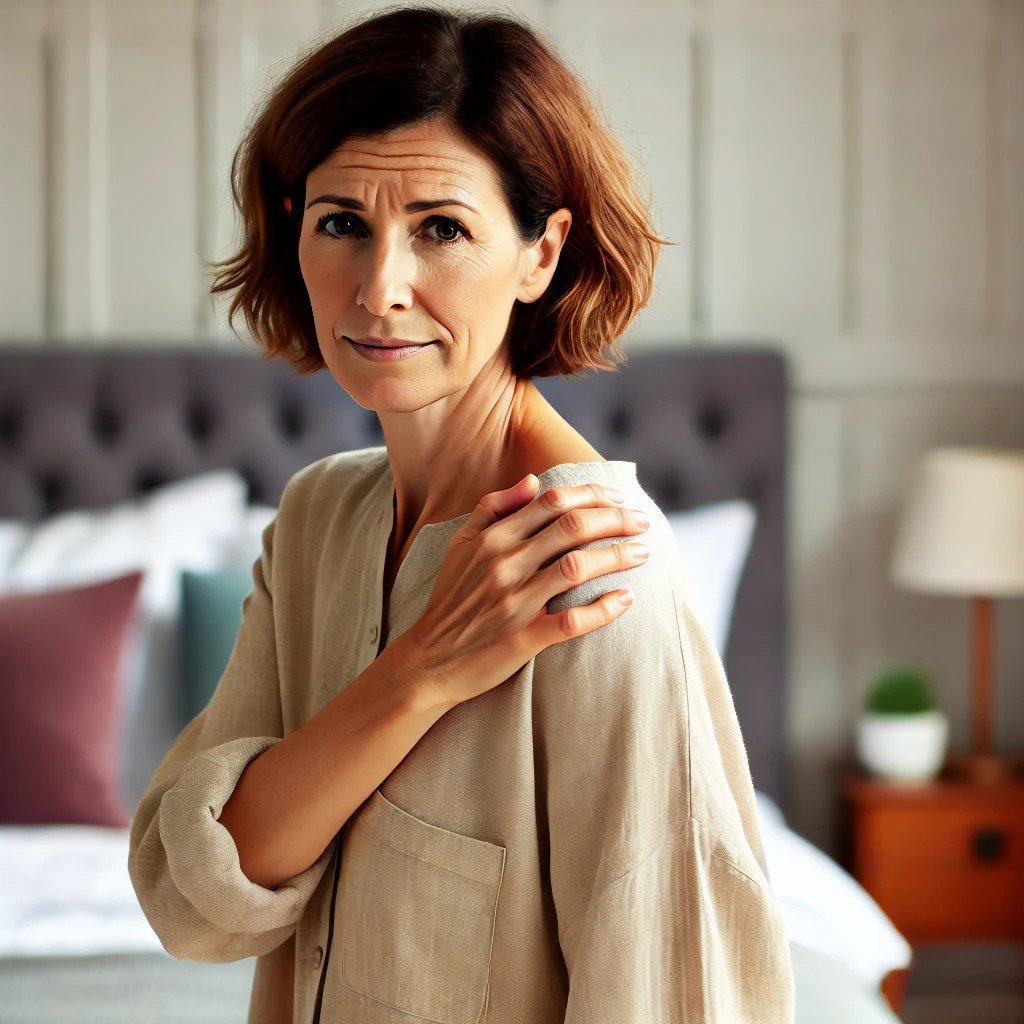Menopause Skin Itching: Causes, Relief, and How to Regain Comfort
Menopause Skin Itching: Causes, Relief, and How to Regain Comfort
Are you experiencing annoying, persistent itching as you approach or navigate through menopause? You’re not alone. Menopause brings about a host of changes, and skin itching is one of the most common yet frustrating symptoms. In this article, we'll explore why menopause can cause skin itching and provide practical, evidence-based solutions to help you regain comfort and confidence.
What Happens to Your Skin During Menopause?
Menopause marks a significant shift in your body's hormonal balance, particularly with a decrease in oestrogen. This hormone is crucial for maintaining skin elasticity, moisture, and thickness. When oestrogen levels drop, your skin can become dry, thin, and more prone to irritation, leading to that maddening itch.
Additionally, the reduction in collagen production during menopause contributes to skin thinning, which makes your skin more sensitive. Slower skin cell turnover also means that your skin doesn't renew itself as quickly, leaving it more vulnerable to environmental factors that can cause itching.
Why Does Menopause Cause Itching?
One of the key reasons menopause causes itching is due to the decrease in natural skin oils. As oestrogen levels decline, your skin's oil production diminishes, leading to dryness. Dry skin is more likely to crack and become itchy, especially in areas where the skin is thinner or more sensitive, such as the face and scalp.
Moreover, the nervous system can become more sensitive during menopause. This heightened sensitivity can cause your skin to feel itchy even when there’s no obvious irritant. It’s a perfect storm of hormonal changes and heightened skin sensitivity that makes itching a common menopause symptom.
Common Areas Affected by Menopause-Related Itching
Itching on the Face and Scalp
The face and scalp are particularly prone to itching during menopause. The skin on your face may feel tighter and drier due to decreased oil production. The scalp, often forgotten in skincare routines, can also become dry and itchy as a result of hormonal changes. Regularly moisturising and using gentle, hydrating hair care products can help alleviate discomfort.
Body Itching – Arms, Legs, and Back
Itching can also affect larger areas of your body, including your arms, legs, and back. These areas may become dry and flaky, especially during colder months when the air is less humid. Keeping your skin moisturised and protected is essential to reducing itching. Consider using a rich, fragrance-free lotion immediately after bathing to lock in moisture.
Vaginal Itching During Menopause
Vaginal itching is another sensitive but common issue during menopause. As oestrogen levels drop, the vaginal tissues can become thinner and drier, leading to discomfort and itching. It’s important to address this issue with a healthcare provider, as they can recommend treatments like oestrogen creams or moisturisers specifically designed for vaginal use.
Practical Tips for Relieving Menopause-Related Itching
Moisturise Regularly and Effectively
Moisturising is your first line of defence against menopause-related itching. Look for moisturisers that contain hydrating ingredients like hyaluronic acid, ceramides, and glycerin. Apply moisturiser immediately after showering when your skin is still damp to help seal in moisture.
Hydration from the Inside Out
Keeping your skin hydrated from the inside out is equally important. Drink plenty of water throughout the day and incorporate water-rich foods like cucumbers and melons into your diet. Additionally, omega-3 fatty acids found in fish, flaxseeds, and walnuts can support skin health by maintaining its moisture barrier.
Gentle Skincare Routine
As a beauty therapist, I recommend adopting a gentle skincare routine to avoid irritating your sensitive skin. Start your day with a gentle cleanser, followed by a toner to balance your skin. Apply a hydrating eye cream and finish with a day cream that includes SPF 30+ to protect your skin from UV damage.
In the evening, cleanse your skin again to remove impurities, then apply a moisturising serum followed by your eye cream. Finally, use a nourishing night cream to lock in moisture overnight.
Body Care: Don’t forget about your body! Regularly exfoliate with a gentle scrub to remove dead skin cells and follow up with a moisturising body lotion to keep your skin soft and smooth.
The Role of Nutrition in Skin Health
Your diet plays a crucial role in skin health, especially during menopause. A balanced diet rich in vitamins and minerals can help keep your skin healthy and resilient. Focus on foods high in vitamins E and C, such as nuts, seeds, and citrus fruits, which support skin elasticity and moisture retention.
Lifestyle Tweaks for Less Itching
Reducing stress through mindfulness, yoga, or other relaxation techniques can also help alleviate itching. Stress can exacerbate menopausal symptoms, including skin itching. Additionally, maintaining a cool, humidified environment in your home can prevent your skin from drying out.
When to Seek Medical Help
Knowing When It’s Time to See a Doctor
If over-the-counter solutions aren’t providing relief, it may be time to seek medical advice. Sometimes, conditions like eczema or psoriasis can be triggered or worsened by menopause, requiring a more targeted treatment approach. Don’t hesitate to consult your healthcare provider if your itching is severe or persistent.
Reclaiming Your Comfort During Menopause
Menopause-related itching can be frustrating, but with the right approach, you can regain comfort and confidence in your skin. By understanding the underlying causes and implementing these practical tips, you can soothe your skin and reduce itching.
If you’re looking for more expert advice on managing menopause symptoms, sign up for my weekly Health Bites for Women 40+. Each week, you’ll receive practical tips, recipes, and wellness advice tailored to your needs during this transformative time of life.









